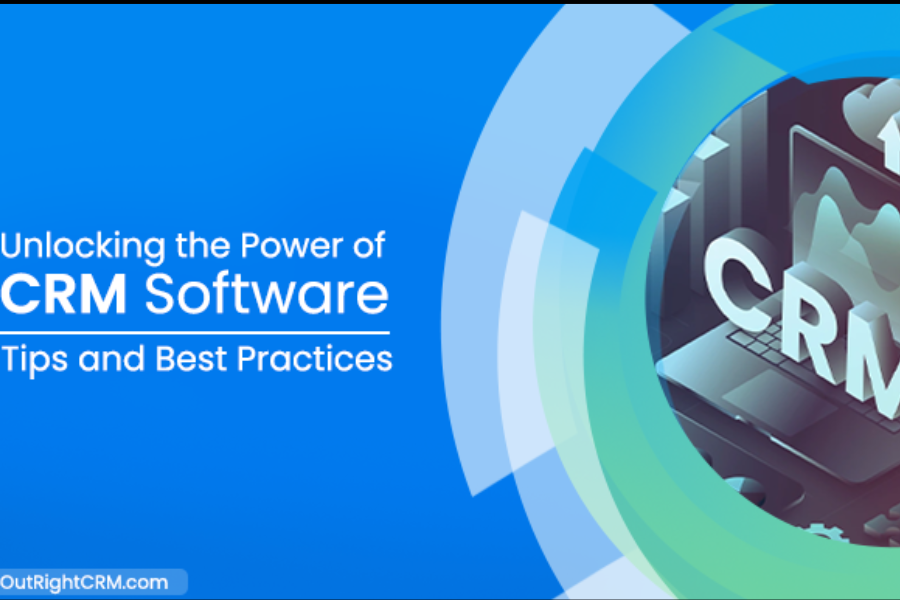Unlocking the Power of CRM Software
Customer Relationship Management (CRM) software is a powerful tool that helps businesses manage and enhance their interactions with current and potential customers. By centralizing customer data, tracking interactions, and aiding in sales management, CRM software plays a crucial role in modern business operations.
How Powerful is a CRM?
A CRM system serves as a central repository for all client information, allowing businesses to track and manage interactions including meetings, phone calls, and emails. This centralization ensures that no information is overlooked and helps keep everyone in the organization informed about client history and needs. By using a CRM, businesses can personalize their customer interactions, improve relationships, and enhance overall customer satisfaction.
Benefits of CRM Software
- Improved Customer Relationships: Centralizes customer data for easier tracking and understanding of client needs, fostering stronger relationships.
- Enhanced Communication: Keeps all communications in one place, facilitating teamwork and collaboration.
- Increased Sales: Optimizes sales processes with automated tasks and a structured sales pipeline, boosting revenue.
- Better Customer Retention: Offers personalized service and interactions, increasing customer loyalty.
- Data-Driven Decisions: Provides accurate data and comprehensive reports for informed decision-making.
- Automated Tasks: Automates repetitive tasks like report generation and follow-up emails, freeing up time for strategic activities.
- Centralized Data: Consolidates all customer-related information for easy access.
- Improved Marketing: Offers insights into customer preferences and behaviors, aiding in targeted marketing efforts.
- Customer Segmentation: Allows businesses to segment customers for improved engagement and personalized campaigns.
- Mobile Accessibility: Enables access to customer data on the go through mobile apps, enhancing productivity and remote work capabilities.
Must-Have Key Features of CRM Software
- Contact Management: Systematically tracks all client data including names, addresses, phone numbers, and social media accounts.
- Sales Automation: Streamlines sales processes by automating routine tasks such as follow-up emails and meeting setups.
- Customer Service and Support: Manages customer support processes efficiently with access to comprehensive interaction histories.
- Marketing Automation: Facilitates campaign planning and execution, including email distribution and client segmentation.
- Reporting and Analytics: Provides detailed reports and insights into marketing, sales, and customer service efforts.
Choosing the Right CRM for Your Business
- Assessing Business Needs: Identify the specific needs of your business and the features that will be most beneficial.
- Key Criteria for Selection:
- Ease of Use: Ensure the CRM is user-friendly.
- Customizability: Check if the CRM can be tailored to your business processes.
- Integration: Consider how well the CRM integrates with your existing tools.
- Scalability: Choose a CRM that can grow with your business.
- Support and Training: Evaluate the support and training offered by the CRM provider.
- Popular CRM Solutions:
- Salesforce: Known for robust features and customization.
- HubSpot: User-friendly, ideal for small to mid-sized businesses.
- Zoho CRM: Comprehensive features at a lower cost.
- Microsoft Dynamics 365: Integrates well with Microsoft products.
- Pipedrive: Focuses on sales and pipeline management.
Keys to Successful CRM Implementation
- Clear Objectives: Define your goals for using CRM to guide the implementation process.
- User Adoption: Ensure your team understands the benefits and receives proper training.
- Data Quality: Migrate clean, accurate data to the CRM for better decision-making.
- Customization: Adjust the CRM to fit your business requirements.
- Ongoing Support and Improvement: Provide continuous support and regularly assess CRM usage to enhance efficiency.
Case Studies and Success Stories
- Canadian Customer Debt Relief (CCDR): Improved lead capture and sales efficiency by adopting CRM software, resulting in a 60% increase in production.
- BYJU’S: Streamlined data management and process tracking with CRM software, enhancing sales follow-ups and recruitment efforts.
Future Trends in CRM Software
- AI and Machine Learning Integration: Automates tasks, predicts customer behaviors, and provides actionable insights.
- Increased Personalization Capabilities: Tailors customer experiences with advanced personalization features.
- Mobile and Cloud-Based Solutions: Offers access to data from any location, supporting remote work.
- Predictive Analytics and Big Data: Uses historical data to forecast future trends and optimize strategies.
FAQs
- What is CRM software? A technology for managing client interactions, streamlining data, and improving collaboration.
- Why is user adoption important in CRM? Ensures effective use and reliable data for better customer interactions and decisions.
- How does AI enhance CRM functionalities? Automates processes, forecasts behaviors, and provides valuable insights.
- Can CRM software be customized? Yes, it can be tailored to fit specific business needs.
- What are the benefits of a cloud-based CRM? Offers accessibility from anywhere and real-time updates.
- How does predictive analytics benefit CRM users? Helps in forecasting trends and optimizing resources and strategies.
Conclusion
CRM software is essential for businesses seeking to enhance customer relationships, streamline sales processes, and improve overall efficiency. By automating operations and providing valuable data insights, CRM systems help organizations stay competitive, foster growth, and achieve long-term success.






